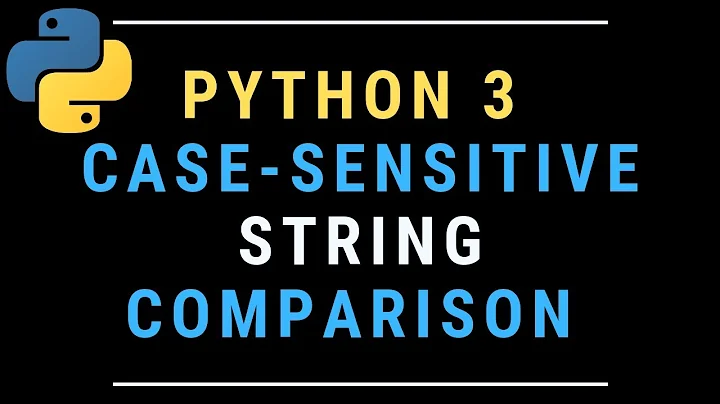Case insensitive std::string.find()
Solution 1
You could use std::search with a custom predicate.
#include <locale>
#include <iostream>
#include <algorithm>
using namespace std;
// templated version of my_equal so it could work with both char and wchar_t
template<typename charT>
struct my_equal {
my_equal( const std::locale& loc ) : loc_(loc) {}
bool operator()(charT ch1, charT ch2) {
return std::toupper(ch1, loc_) == std::toupper(ch2, loc_);
}
private:
const std::locale& loc_;
};
// find substring (case insensitive)
template<typename T>
int ci_find_substr( const T& str1, const T& str2, const std::locale& loc = std::locale() )
{
typename T::const_iterator it = std::search( str1.begin(), str1.end(),
str2.begin(), str2.end(), my_equal<typename T::value_type>(loc) );
if ( it != str1.end() ) return it - str1.begin();
else return -1; // not found
}
int main(int arc, char *argv[])
{
// string test
std::string str1 = "FIRST HELLO";
std::string str2 = "hello";
int f1 = ci_find_substr( str1, str2 );
// wstring test
std::wstring wstr1 = L"ОПЯТЬ ПРИВЕТ";
std::wstring wstr2 = L"привет";
int f2 = ci_find_substr( wstr1, wstr2 );
return 0;
}
Solution 2
The new C++11 style:
#include <algorithm>
#include <string>
#include <cctype>
/// Try to find in the Haystack the Needle - ignore case
bool findStringIC(const std::string & strHaystack, const std::string & strNeedle)
{
auto it = std::search(
strHaystack.begin(), strHaystack.end(),
strNeedle.begin(), strNeedle.end(),
[](char ch1, char ch2) { return std::toupper(ch1) == std::toupper(ch2); }
);
return (it != strHaystack.end() );
}
Explanation of the std::search can be found on cplusplus.com.
Solution 3
why not use Boost.StringAlgo:
#include <boost/algorithm/string/find.hpp>
bool Foo()
{
//case insensitive find
std::string str("Hello");
boost::iterator_range<std::string::const_iterator> rng;
rng = boost::ifind_first(str, std::string("EL"));
return rng;
}
Solution 4
Why not just convert both strings to lowercase before you call find()?
Notice:
- Inefficient for long strings.
- Beware of internationalization issues.
Solution 5
Since you're doing substring searches (std::string) and not element (character) searches, there's unfortunately no existing solution I'm aware of that's immediately accessible in the standard library to do this.
Nevertheless, it's easy enough to do: simply convert both strings to upper case (or both to lower case - I chose upper in this example).
std::string upper_string(const std::string& str)
{
string upper;
transform(str.begin(), str.end(), std::back_inserter(upper), toupper);
return upper;
}
std::string::size_type find_str_ci(const std::string& str, const std::string& substr)
{
return upper(str).find(upper(substr) );
}
This is not a fast solution (bordering into pessimization territory) but it's the only one I know of off-hand. It's also not that hard to implement your own case-insensitive substring finder if you are worried about efficiency.
Additionally, I need to support std::wstring/wchar_t. Any ideas?
tolower/toupper in locale will work on wide-strings as well, so the solution above should be just as applicable (simple change std::string to std::wstring).
[Edit] An alternative, as pointed out, is to adapt your own case-insensitive string type from basic_string by specifying your own character traits. This works if you can accept all string searches, comparisons, etc. to be case-insensitive for a given string type.
Related videos on Youtube
wpfwannabe
Updated on July 05, 2022Comments
-
wpfwannabe almost 2 years
I am using
std::string'sfind()method to test if a string is a substring of another. Now I need case insensitive version of the same thing. For string comparison I can always turn tostricmp()but there doesn't seem to be astristr().I have found various answers and most suggest using
Boostwhich is not an option in my case. Additionally, I need to supportstd::wstring/wchar_t. Any ideas?-
Alexandre C. almost 14 yearsThere's a Gotw about this very subject : gotw.ca/gotw/029.htm
-
Nasir over 8 yearsstristr is not there, but "char *strcasestr(const char *haystack, const char *needle);" is there. Isnt this ok?
-
Yuchen almost 8 years@Nasir,
strcasestris not available under Windows.
-
-
 bkausbk almost 12 yearsBecause it is very inefficient for larger strings.
bkausbk almost 12 yearsBecause it is very inefficient for larger strings. -
rstackhouse about 10 yearsWhy are you using templates here?
-
Kirill V. Lyadvinsky about 10 years@rstackhouse, template here is for a support of different char types (
char&wchar_t). -
Lara almost 10 yearsThanks, Kirill. For those as clueless as I am, insert
std::advance( it, offset );after the declaration of the iterator to start the search from an offset. -
 jww almost 10 years"... I have found various answers and most suggest using Boost which is not an option in my case".
jww almost 10 years"... I have found various answers and most suggest using Boost which is not an option in my case". -
Enissay over 9 yearsWhat if I want to find a char
cin a stringstrusing the same function. calling it usingfindStringIC(str, (string)c)doesnt work -
CC. over 9 yearsThis type of char to string cast does not work, you have to actually create the string object like
std::string(1, 'x')See coliru.stacked-crooked.com/a/af4051dd1d15972e If you do this a lot it might worth creating a specific function that does not require creating a new object every time. -
 Bart about 8 yearsThis is also not really a good idea if your software ever needs to be localized. See Turkey test: haacked.com/archive/2012/07/05/…
Bart about 8 yearsThis is also not really a good idea if your software ever needs to be localized. See Turkey test: haacked.com/archive/2012/07/05/… -
Alexis Wilke almost 8 yearsIn most cases, it is preferable to use
tolower()when doing a case insensitive search. Even Ada changed it to lowercase! There are reasons that Unicode.org probably explains somewhere but I do not know exactly why. -
CC. over 7 yearsUpper case is better msdn.microsoft.com/en-us/library/bb386042.aspx but of course not perfect. If you need Turkish, that's going to be hard stackoverflow.com/questions/234591/upper-vs-lower-case and haacked.com/archive/2012/07/05/…
-
kayleeFrye_onDeck about 7 yearsTypically, unless a C++ question is tagged for Boost, it's assumed Boost isn't an option.
-
Basj almost 7 yearsFor those (like me) who are not familiar with templates, can you also post a standard version without templates, without locales? Just for
wstringfor example @KirillV.Lyadvinsky? -
Orwellophile over 6 years... did they do away with templates in C++11? I must have missed the memo :)
-
CC. over 6 yearsNo template needed in this case. For C++17 you might want to take a look at string_view instead of std::string skebanga.github.io/string-view
-
kayleeFrye_onDeck about 6 yearsThe arguments you'll uncover for doing basic upcase and downcase operations in C++ on anything not encoded as ANSI will overwhelm you xD Simply put, it's not trivial for the standard library to handle as of C++17.
-
kayleeFrye_onDeck about 6 yearsThat was a great read on
string_view! Something new and shiny, and fast! :) -
SJHowe almost 6 yearsThe last 3 lines of code should be return (extracted_match.length() == subString.length());
-
kayleeFrye_onDeck almost 6 years"should" might be a bit strong for wording, but I agree that it's an improvement! :) Ty & updated ^_^
-
 MiloDC almost 4 yearsDoes the call to
MiloDC almost 4 yearsDoes the call tostd::toupperactually work for wide characters? Wouldn't you need to callstd::towupper? -
 Nguyen Manh over 2 yearsplease add
Nguyen Manh over 2 yearsplease addstring.find_first_of or wstring.find_first_of. implementation -
 ycomp about 2 yearsthe answer i was looking for, thanks
ycomp about 2 yearsthe answer i was looking for, thanks





